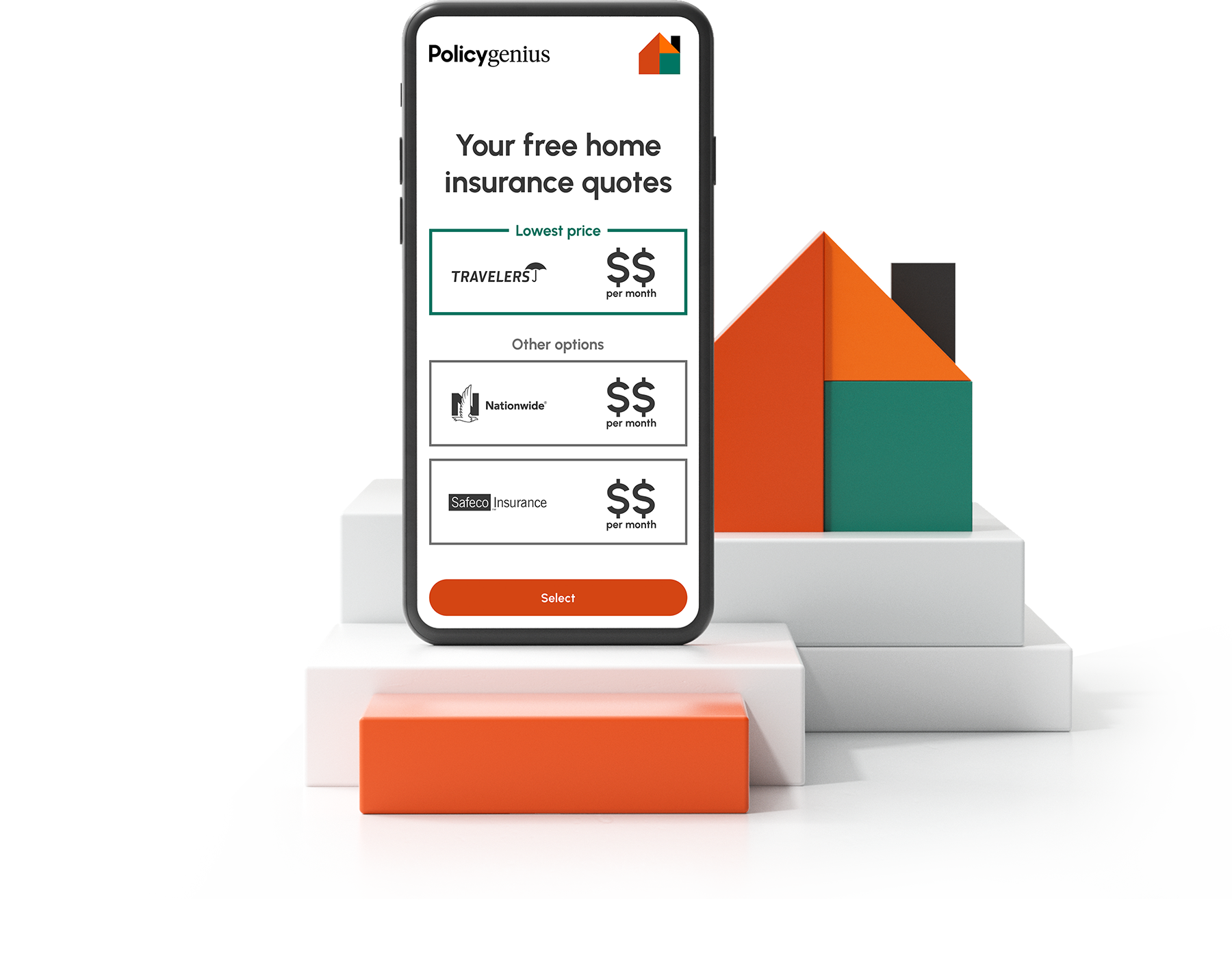What is dwelling coverage?
Dwelling refers to your home. In homeowners insurance, your dwelling coverage pays to rebuild the structure of your home in the event that it is damaged by a covered loss. Dwelling coverage is the part of homeowners insurance that pays to repair or rebuild your home if it's damaged by a covered event, such as a fire or windstorm. Also called Coverage A, it covers damage to your home's roof, foundation, attached structures, and anything else that's considered part of the dwelling.
Structures separate from the home itself, like a detached garage or swimming pool, are covered under different parts of your home insurance policy.
How much dwelling coverage do I need?
You will need enough dwelling coverage to rebuild your home from the ground up in case it's totally destroyed. Therefore, you'll want to make sure your dwelling coverage limit is equal to the home's replacement value, which is based on things like the size of your home, local building costs per square foot, and the price of construction materials and labor.
Replacement value is different from the home's market value or purchase price, which is based on things like land value and what buyers are willing to pay for it in the current market. Basing your dwelling coverage limits on one of these amounts could leave you significantly underinsured, or without enough home insurance to rebuild after a disaster.
You can check your homeowners insurance declaration page to find out how much dwelling coverage you have. Also called a dec page, this is a 1- to 2-page document you should have received when you first purchased your policy that summarizes your coverage limits, annual premium, deductible, and contact information. If you can’t find it, your insurance company will be able to provide you with a new copy.
What factors impact a home's dwelling coverage limits?
There are several different factors that affect the cost of rebuilding your home and help determine how much dwelling coverage you need, such as:
The home's square footage
Price of construction and labor
Number of rooms
Age of the home
Architectural style
Interior features, like cabinets or type of flooring
Number of stories
Home renovations or additions
Keep in mind that a home's replacement cost can increase over time due to inflation, natural disasters, and other factors that can cause home construction and labor costs to soar. For that reason, you should review and update your dwelling coverage amounts each year.
But many people don't. According to our Policygenius Home Insurance & Inflation Shopping Survey, more than half of homeowners (56%) didn't review their home insurance policy in the last year to see how much coverage they had. And even fewer homeowners have valuable coverage add-ons to offset rising costs due to inflation and the increase in natural disasters.
Dwelling coverage endorsements
Homeowners in high-risk locations should consider purchasing the following dwelling coverage endorsements to protect against rising construction and labor costs after a disaster.
Extended replacement cost: Also called extended dwelling coverage, it increases your home's coverage amounts an additional percentage (like 25% or 50%) if your house is destroyed and your dwelling coverage limits aren't high enough to cover the cost to rebuild it to its original condition before the loss.
Guaranteed replacement cost: Increases your home's coverage amounts to cover whatever it costs to rebuild your home. Unlike extended replacement cost, there is no percentage cap on how much it will pay out, making this the most comprehensive form of dwelling coverage.
How to calculate dwelling coverage
Most insurance companies now provide fairly accurate replacement cost estimates when you get home insurance quotes. And generally, once your policy goes into effect, your insurer will perform an on-site inspection to verify that you're insured for the correct amounts.
But you can also get your own estimate by multiplying the square footage of your home by the average local building costs per square foot. When calculating this amount yourself, you'll also want to consider your home's built-in appliances and interior features. For a more accurate estimate, consider getting a special replacement cost appraisal of your home or using an online replacement cost calculator.
Learn more >> How much home insurance do I need?
What does dwelling insurance cover?
The dwelling coverage section of homeowners insurance covers damage to the structure of your home from accidental fires, windstorms, vandalism, and other covered losses. Under this coverage, your house is protected on an open perils or all risks basis, which means you're covered against all causes of loss except the specific exclusions listed in your policy. Here's some common causes of home damage covered by dwelling insurance.
Fire, lightning, and smoke
Windstorm and hail
Theft
Vandalism and malicious mischief
Falling objects
Weight of snow or ice
Freezing
Burst pipes
Volcanic eruption
What does dwelling insurance not cover?
Dwelling coverage generally won't reimburse you for property damage caused by flooding, earthquakes, or any other policy exclusion listed in this portion of your policy. However, there are several extra coverages or additional policies that you can purchase to fill in those coverage gaps.
Flooding
Most home insurance policies won’t cover water damage caused by outside flooding, such as hurricane storm surge, high tides, flash flooding, and any other source of natural floods. To cover your home and belongings from flooding, you’ll need separate flood insurance.
Earthquakes
Damage caused by earthquakes, tremors, landslides, mudslides, subsidence, and sinkholes are also not covered under a standard policy. Coverage may be available via a coverage endorsement or a standalone earthquake insurance policy.
Maintenance issues or normal wear and tear
Dwelling coverage specifically excludes damage caused by neglect or poor maintenance. If your home has an obvious mold problem, or if an exposed pipe leaked over the course of months and caused extensive water damage, you likely wouldn’t be covered.
Infestations
Damage caused by pests infestations are also excluded from coverage. So if your home is overrun by a family of rodents or other invasive pests, dwelling insurance likely won't cover the cost of removal or repairs.
Sewer backups
Dwelling coverage also excludes structural damage caused by water or sewage backups. That means if your sewer pipes back up and flood your basement, your dwelling insurance won’t pay the repair or remediation costs. However, most insurers offer water backup coverage for an additional fee.
Is dwelling coverage required?
While dwelling coverage is not required by law, most mortgage lenders require you to purchase a policy before they’ll extend you a loan. This is because they have a financial stake in your property until you fully pay off your mortgage, so they want to ensure their investment is fully protected.
Learn more >> How much home insurance is required for a mortgage?
How much does dwelling coverage cost?
The average cost of homeowners insurance in the U.S. is $1,754 per year for a policy with $300,000 in dwelling coverage. Since homes are expensive to insure and carry a relatively high risk of loss, your dwelling coverage limit accounts for the bulk of your home insurance premium.
Dwelling insurance cost by coverage limit
In general, more dwelling coverage means higher home insurance rates. Let’s take a look at the average cost of home insurance in the U.S. by dwelling coverage limit, according to our 2022 rate analysis.
Dwelling converge limit | Average monthly cost | Average annual cost |
|---|---|---|
$100,000 | $79 | $946 |
$200,000 | $120 | $1,442 |
$300,000 | $146 | $1,754 |
$400,000 | $207 | $2,481 |
$500,000 | $256 | $3,066 |
Methodology
Policygenius has analyzed home insurance rates provided by Quadrant Information Services in March 2022 for ZIP codes in all 50 states plus Washington, D.C., for a 40-year-old female homeowner with no claim history, good credit, a $1,000 deductible, and the following coverage limits:
Dwelling: $300,000
Other structures: $30,000
Personal property: $150,000
Loss of use: $60,000
Liability: $300,000
Medical: $1,000
All rates based on the above coverage limits except where otherwise noted.
Some carriers may be represented by affiliates or subsidiaries. Rates provided are a sample of costs. Your actual quotes may differ.




